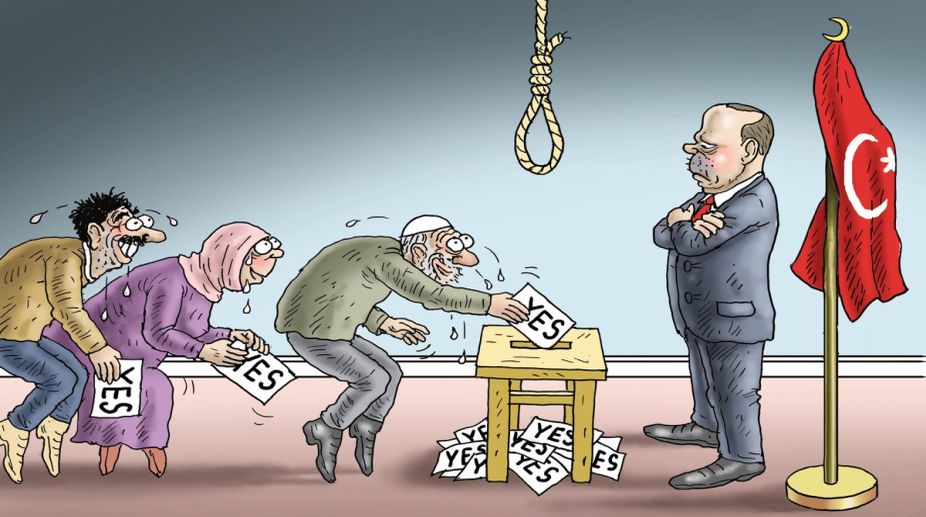Turkey has reached a crucial stage in its political history, of a kind that is bound to have an impact on its handling of sub-regional jingoism and its dealings with Europe in the wider canvas. Sunday’s historic referendum will lend more power to President Recep Tayyip Erdogan’s elbow and this must be deemed to be a critical achievement for a leader who contends with crises on several fronts, not least the migrants issue. Chiefly, he has been given a free hand to go ahead with a cache of constitutional amendments that will grant him sweeping new powers. The people ~ even children boast the right to vote ~ have approved the expanded presidential powers though the margin of victory does seem to be marginal ~ 51.3 per cent (Yes) and 48.7 per cent (No), almost recalling the Brexit result last June. The narrow victory will doubtless come as a disappointment for the ruling Justice and Development party (AKP), which had hoped for a decisive mandate. Nonetheless, Erdogan will very probably remain in power until 2029 if he wins successive elections. In the immediate perspective, the result of the referendum sets the stage for a dramatic transformation of the structure of governance. Crucially, this will entail a watershed transition from a parliamentary democracy to a presidential republic, arguably the most important development in the country’s history since Kemal Ataturk’s westernisation of Turkey after the country was founded following the collapse of the Ottoman Republic. A hundred years later, the country like certain parts of Europe is confronted with the challenge of militant Islam. Not that the presidential system will ipso facto denude the democratic engagement; both America and France have an executive presidency, the first being the world’s largest democracy. Having said that, the referendum has exposed divisions within Turkish politics and the Opposition has signalled its intent to contest the result. Turkey’s allies in Europe have already expressed fears that the country might slide towards autocracy. Much will of course hinge on Erdogan’s exercise of his powers. Given the sweeping authority that he is now poised to wield, the European Commission has greeted the result of the referendum with a caveat that Turkey should seek the “broadest possible national consensus” in its constitutional amendments, given the Yes campaign’s slender margin of victory. Unmistakable is the inherent paradox ~ Erdogan’s enormous powers are embedded in a rather weak mandate, one that doesn’t quite inspire confidence. His decision to revive the death penalty can be contextualised with the recent purge in the military and the festering restiveness of the Kurds. To distinguish between an event and a process in history, Sunday witnessed an event; the fresh wave of evolution in Mustafa Kemal’s Turkey has only just begun.
Advertisement











